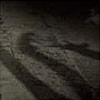
By Jonathan Wojcik
It's December 2022, the widely recognized final month of Halloween, and while my Halloweens have gotten steadily smaller, I wasn't going to let this one pass me by without doing something special for its last four weeks: a 31 day countdown of what I consider some of the truly strangest and most original movie monsters, a feature I've thought about doing for several years in a row now.
...But what we're about to delve into might not necessarily be what you're expecting. I shared some thoughts on cinematic creature design when I reviewed the movie
Nope, but that was on the subject of "monsters" in the more straightforward sense of beasts, creatures and ghouls. When I say we're about to look at my picks for the
"strangest" monsters, I mean something far stranger than an alien parasite or a formless mutant. Yes, stranger even than a living, carnivorous flying saucer.
Maybe you'll get an inkling of what I'm getting at here when I say that one of the most "ordinary" monsters we'll be looking at - one of the most straightforward "creepy critters" I suppose - is a sexy talking hole in an apartment wall.
ENTRY 01: Deep Dark (2015)
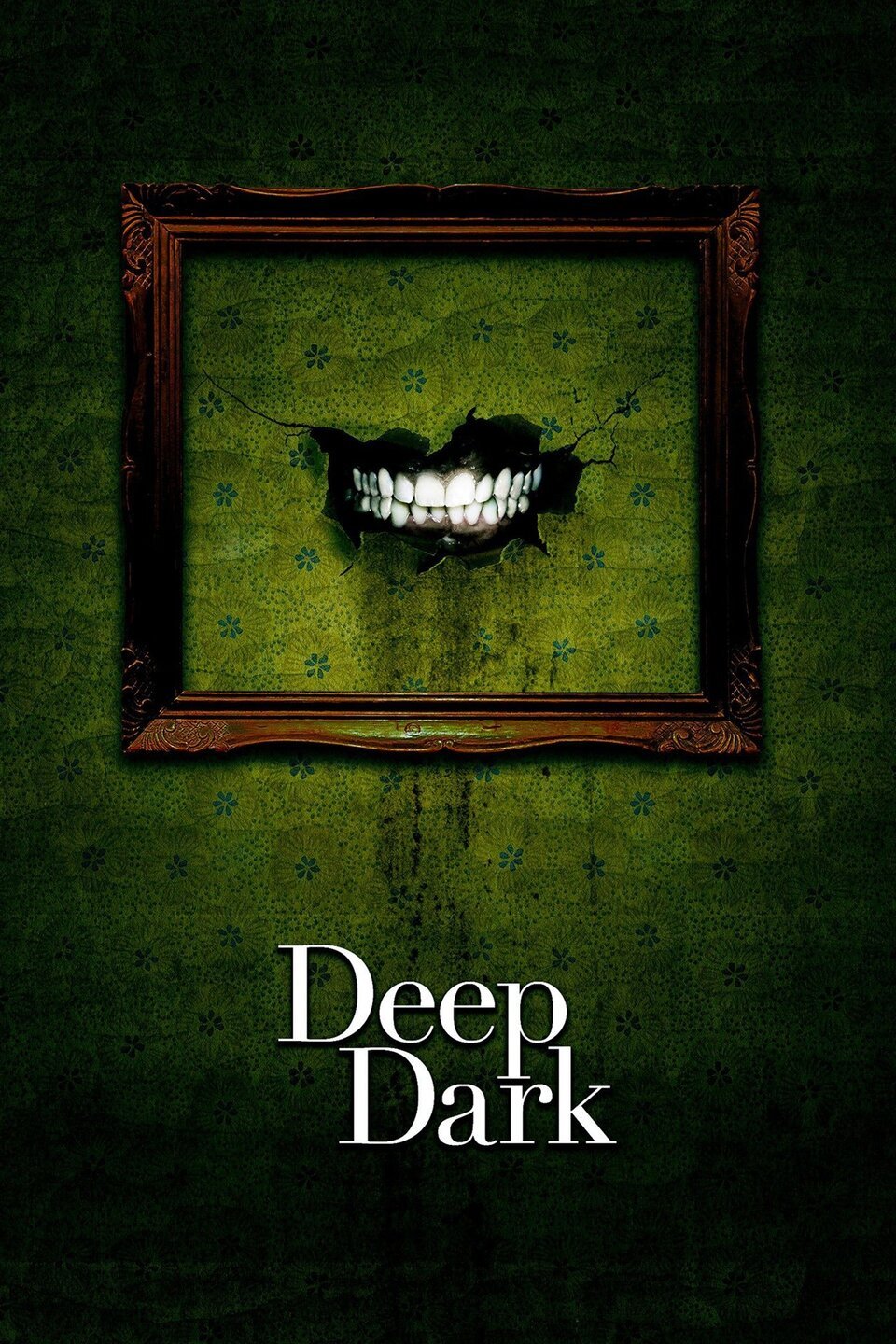
Written and directed by Michael Medaglia, Deep Dark stars John McGrath as Hermann Haig, an artist who dreams of the day his abstract sculptures land him widespread recognition as a visionary genius...maybe even get him out of his mom's house, at long last!? Unfortunately, his dangling mobiles of junk drawer scrap fail to impress, and he only earns the
ire of the local art scene - including Devora Klein (Anne Sorce) an art critic he's been creepily crushing on from afar - when his latest big-brained idea involves his literal blood, sweat and tears. Yeah. There's a haz-mat team involved.
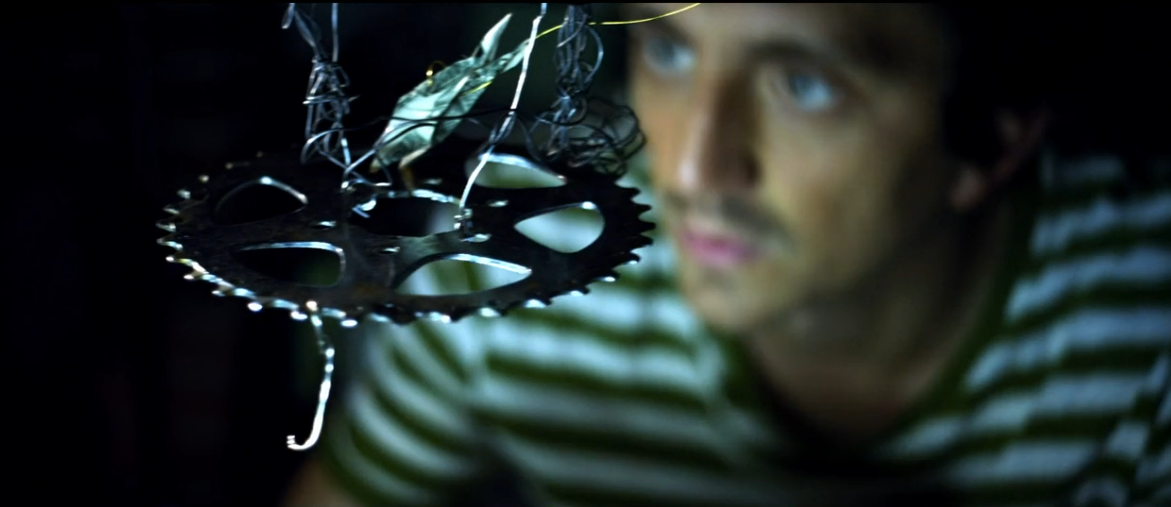
Needless to say, Hermann is soon more desperate to catch a break than he's ever been before, and he finally turns a rich artist already in his family - an obnoxious uncle he always considered a hack and a con artist. His uncle rather cryptically claims to have been just like Hermann until struck by some special inspiration at a studio apartment he
insists will kickstart his nephew's career the same way.
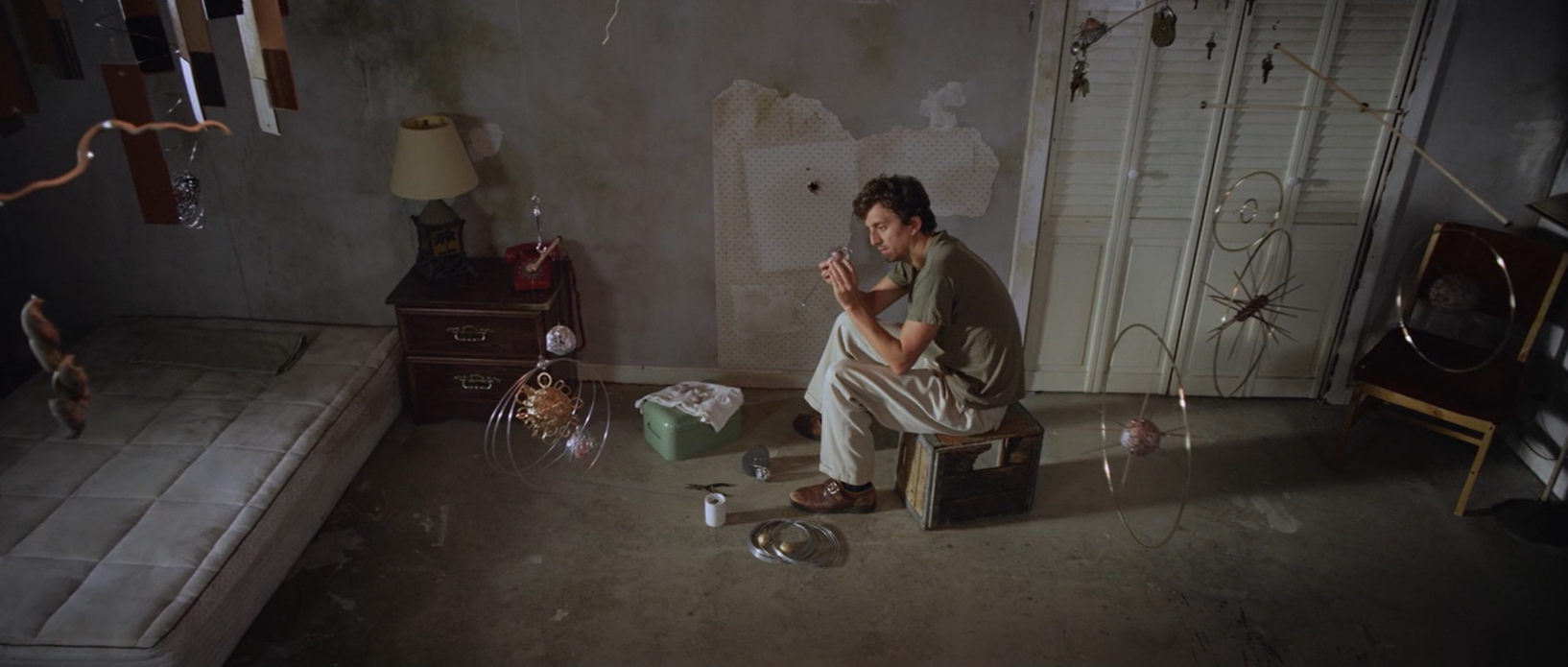
The mildew-eaten hovel doesn't seem special, until of course Hermann discovers an otherwise unremarkable round hole in the wall and pulls a paper note from it on the end of a long string, promising to help him. Investigating further, he discovers that he hears
moans from the wall when he touches the opening, and it finally ejects a cyst-like slimy pod into his hands.
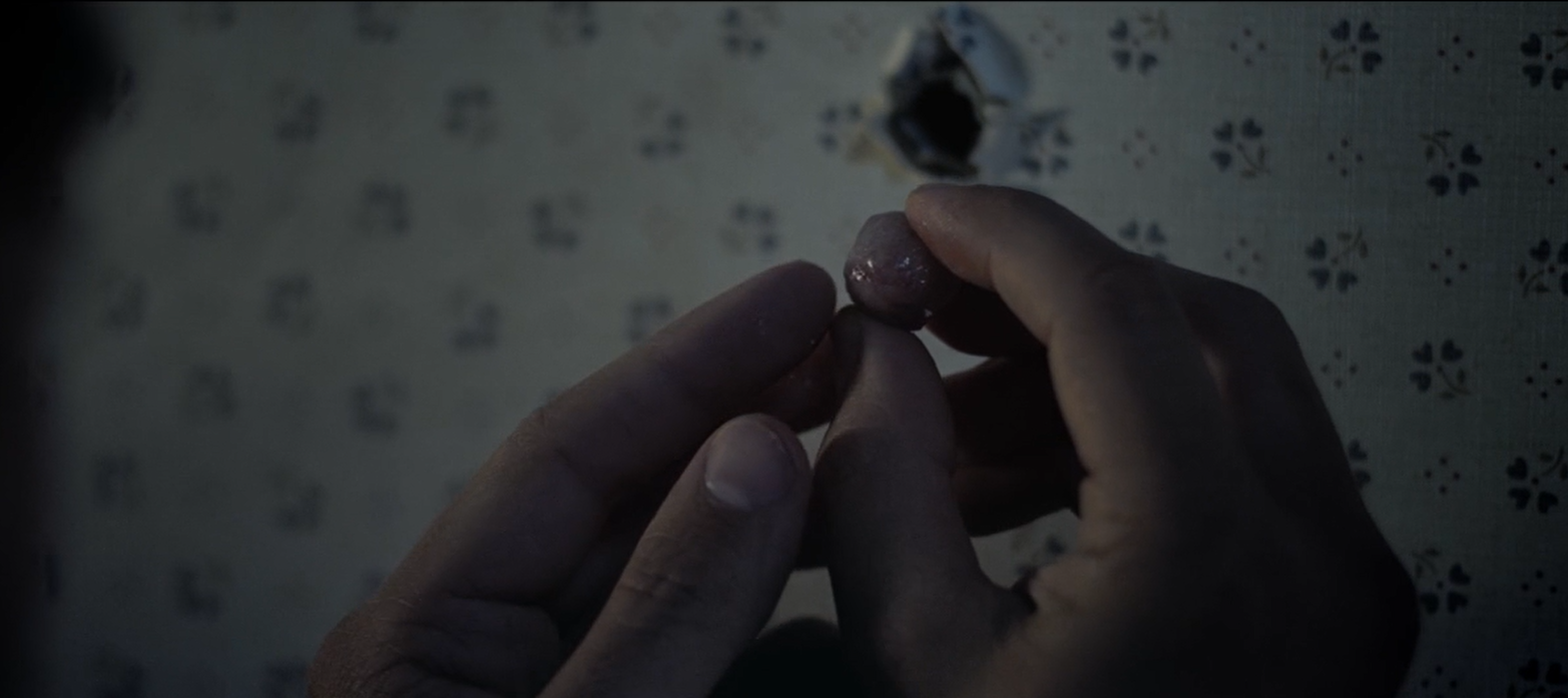
When Hermann attaches the strange polyp to one of his shoddy mobiles, the clump of junk suddenly takes on an almost hypnotic quality. Everyone who so much as comes near it is immediately fascinated, willing to pay anything they have to take the sculpture home and indeed convinced that only a master artist could have concocted something so deeply profound.
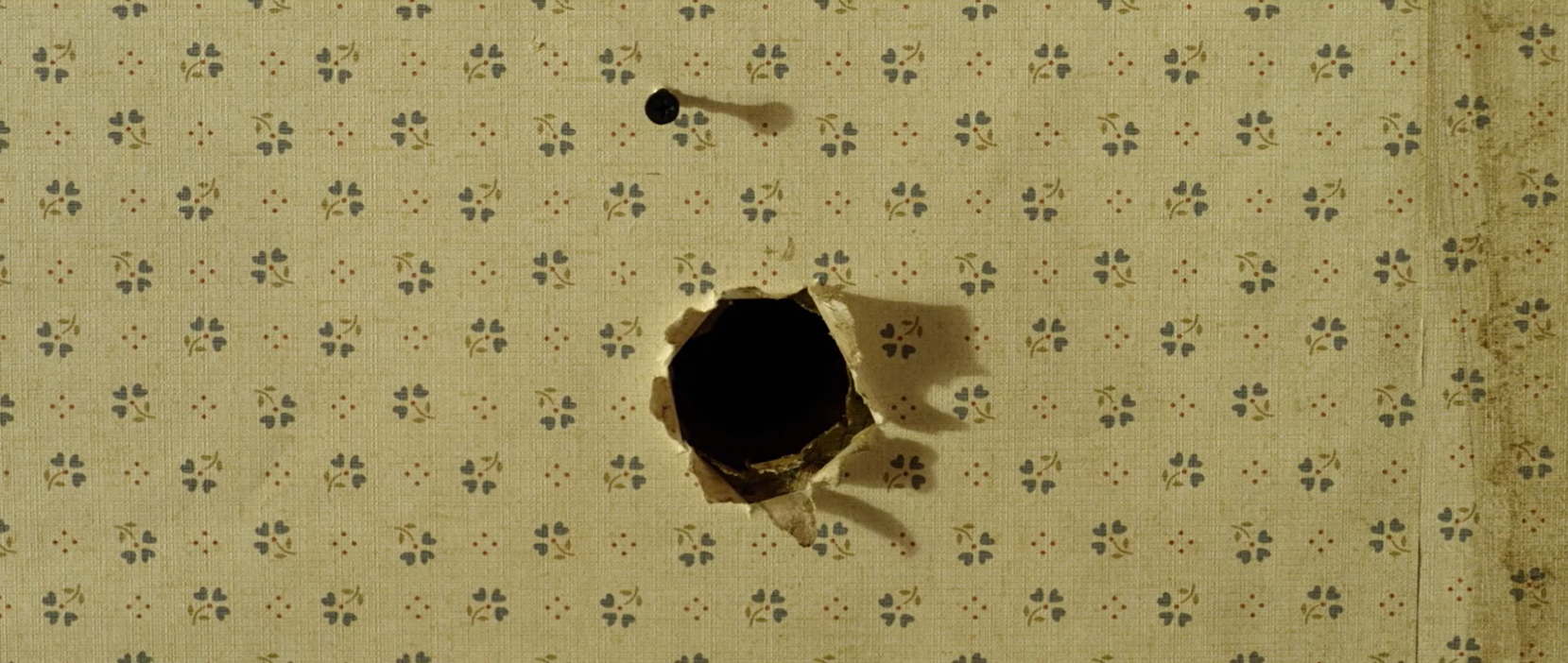
...And when he returns to his figurative hole in the wall, its literal hole in the wall has not only grown a little bigger, but evolved to the point of full human speech. There's still no matching opening on the opposite wall or any other physical space where a person could be hiding, but the sultry voice of The Hole (Denise Poirier, also famous as the voice of
Aeon Fluxx!) promises to make more "great art" with Hermann if he'll only promise to keep "spending time" with her.
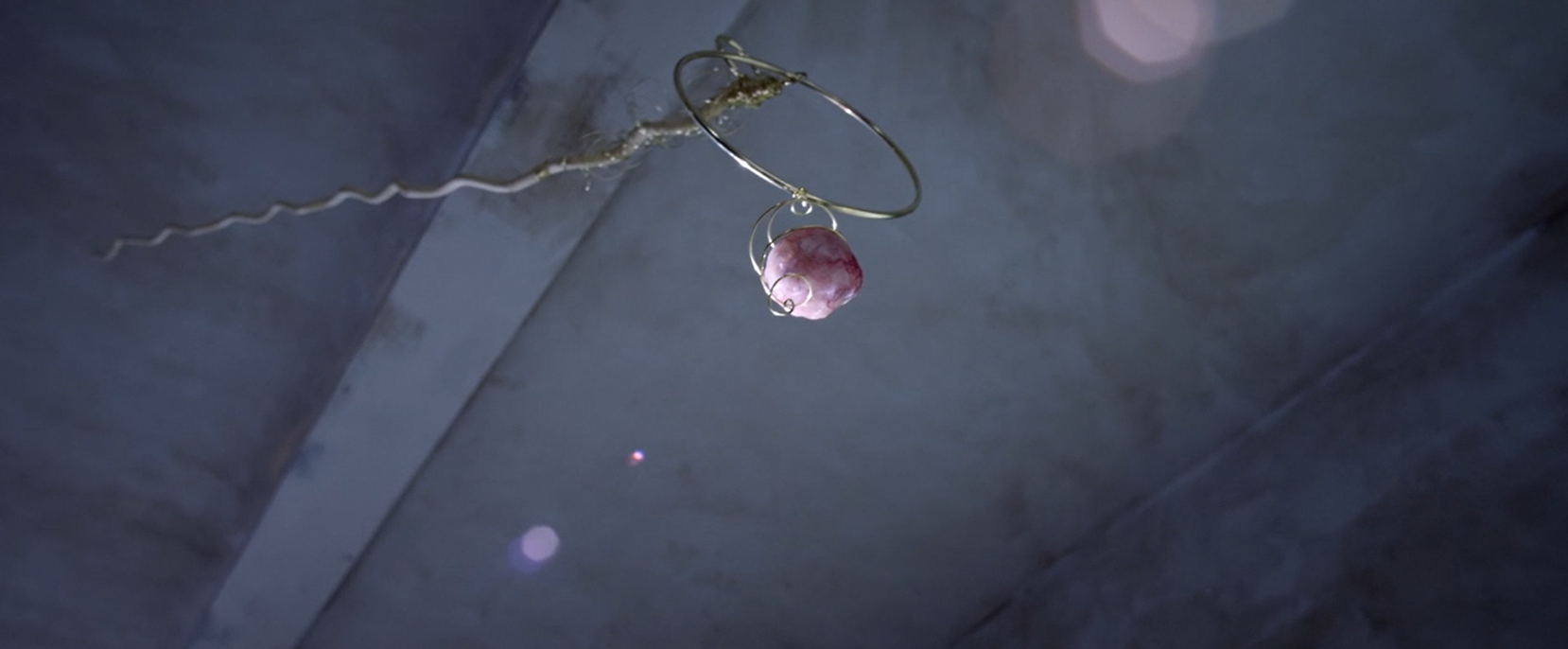
Things escalate quickly from there. The Hole is instantly infatuated with Hermann, and believes he reciprocates her feelings when he seems increasingly willing to indulge the unseen entity's emotional and, uh, more physical needs. To Hermann, however, it's all just the price he has to pay for more of those magical little pheromone glands, or whatever they may be.
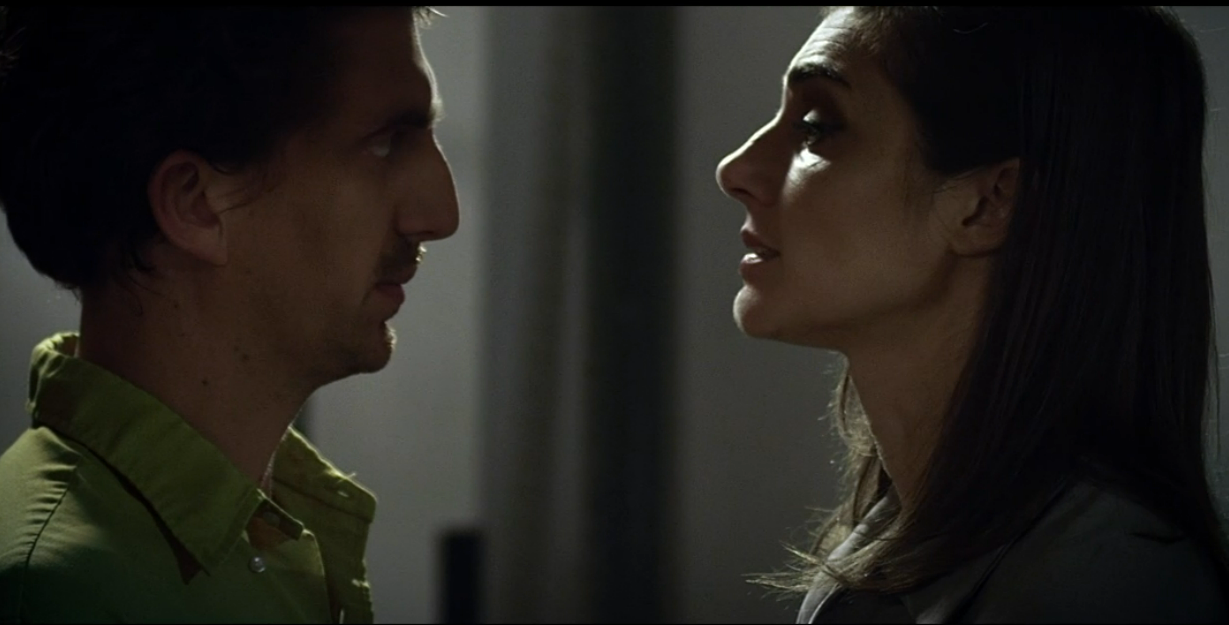
It doesn't take long before Hermann is spending much more time with adoring fans and more humanoid lovers - including Devora - than with his newfound muse, whom he strings along with the laziest bare minimum of feigned affection even as it provides him ever-larger, ever more powerful pieces of itself...a process that is evidently painful, to boot. What happens from there is unsurprisingly not a happy ending for anyone involved, but nor is it a full blown horror movie bloodbath, either. It's a subtler, sadder supernatural tragedy that I think is definitely worth checking out at least once, and at the time of this writing, it's actually available on
free legal streaming, if you want to see it in good quality.
MONSTER ANALYSIS: THE HOLE
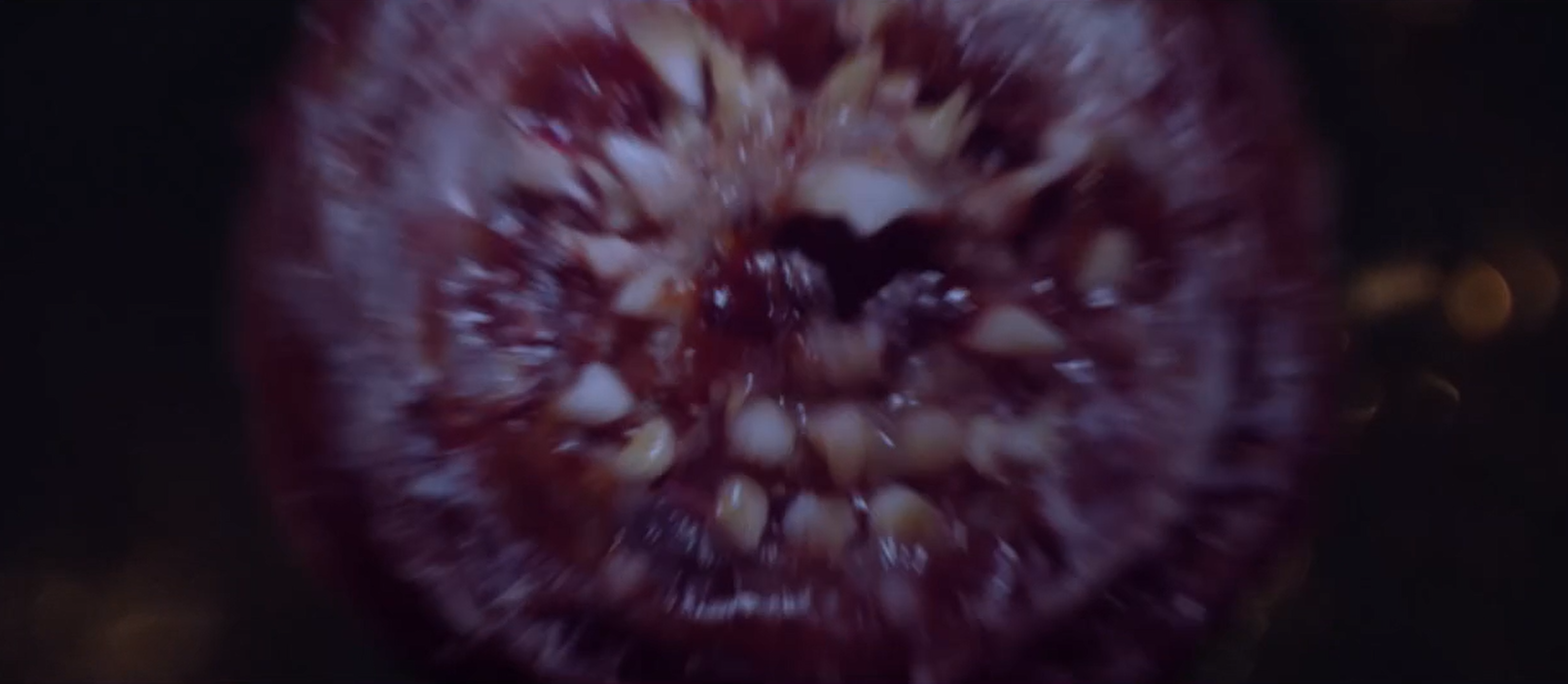
We never learn exactly what The Hole is, or even any more specific name to call her by, but we do know she's been at it for at least the better part of a century, claiming to have "inspired" names as famous as Andy Warhol and Jackson Pollock. We also know the polyps aren't her only physical matter; the hole itself is lined with slimy tissue, she oozes red blood where the surrounding wall is damaged, and even strikes the prying eye of one unwelcome intruder with a lamprey-like fanged sucker.
It's especially interesting that Hermann seems wholly unaffected by the lure of the polyps, and receives his first one only after pricking a finger on something (most likely a lamprey-tooth) just inside the hole. As the strange relationship grows more and more physical, the organism not only manufactures ever stronger polyps but spreads herself further throughout the apartment, and I have to say, Hermann could have tried a
little harder to humor her when she expanded into the bathroom. She was EXCITED about the new hole she made there! She even wanted it to be a "surprise" for him!
What we can conclude from all of this, besides Hermann being a bastard, is that The Hole relies on genetic input to build new biomass and in particular the "gifts" she spits back out. Whether these can develop into anything further is unknown, but the magical globules are in a sense the hybrid "offspring" she produces from a human mate, which surely factors into whatever biochemical process endears other humans to that mate specifically.
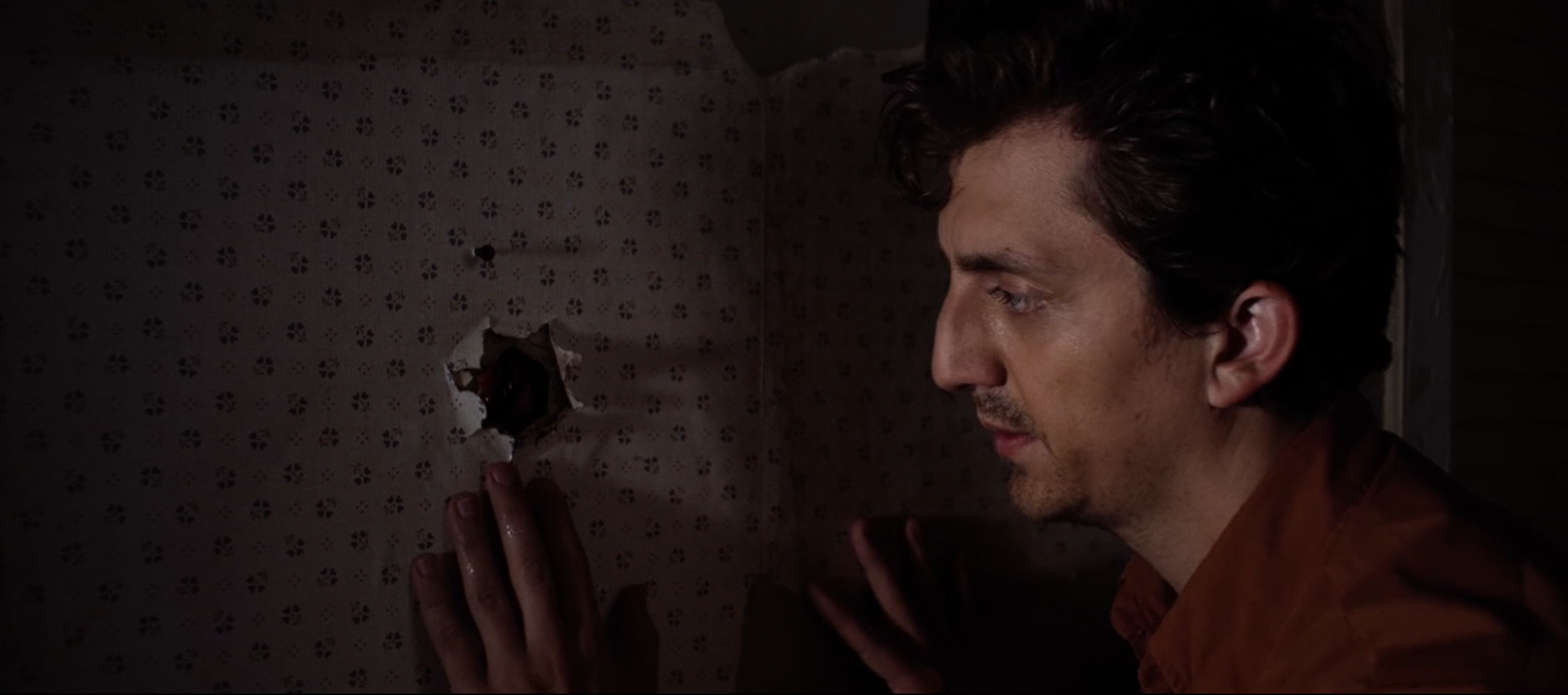
These elements easily lend themselves to a very strange, formidable and potentially dangerous being, but what makes The Hole most fascinating of all is that she's not truly a monster. Technically speaking she is never even an
antagonist. Medaglia wanted a powerful and commanding yet sympathetic and misunderstood monster from the start, and that comes through abundantly well in the film's final execution. Nothing that happens in the story is ever the result of any unprovoked malice on her part, and she never uses or deceives Hermann at all, but precisely the opposite. There's a clear running theme in this film of objectification; Hermann seems disgusted by the way his uncle treats women as the trophies of his success, oblivious to the fact that he's disrespecting Devora the very same way, pining for her as the grand prize in a perceived competition with his fellow artists. There's even another human woman, his fairly adorable landlady, who is clearly attracted to him and even bakes him desserts(!) but since she's no one famous, or at least no one he's spent years lusting over in secret, she means nothing to him but a quick off-screen romp shortly after he becomes a success.
And then there's the lady in his life who is saddeningly, literally already an object, a non-human that Hermann can use to his advantage. We're almost set up to expect something more like a siren or a succubus, at first; a sinister creature with the power to sexually manipulate unsuspecting humans for its own diabolical ends. Instead, we only find an entity genuinely desperate for mutual, consensual love who is helpless to seek it out on her own. She's not out to devour Hermann's soul, take control of his mind or inject him full of any parasitic larvae that we're ever made aware of, but
really means it when she calls the pods a "gift" and sounds sincerely invested in helping her partners become famous creators. Without getting too vulgar, the significance of this entity manifesting as "just a hole" should be obvious. Specifically a hole that a series of people have taken something from while giving little to nothing in return, failing to even appreciate the being until, in Hermann's case, it proves to be too little, too late.
NAVIGATION:
